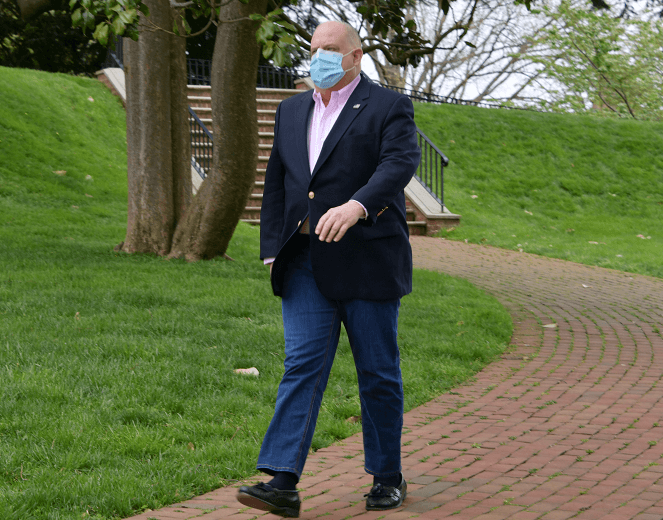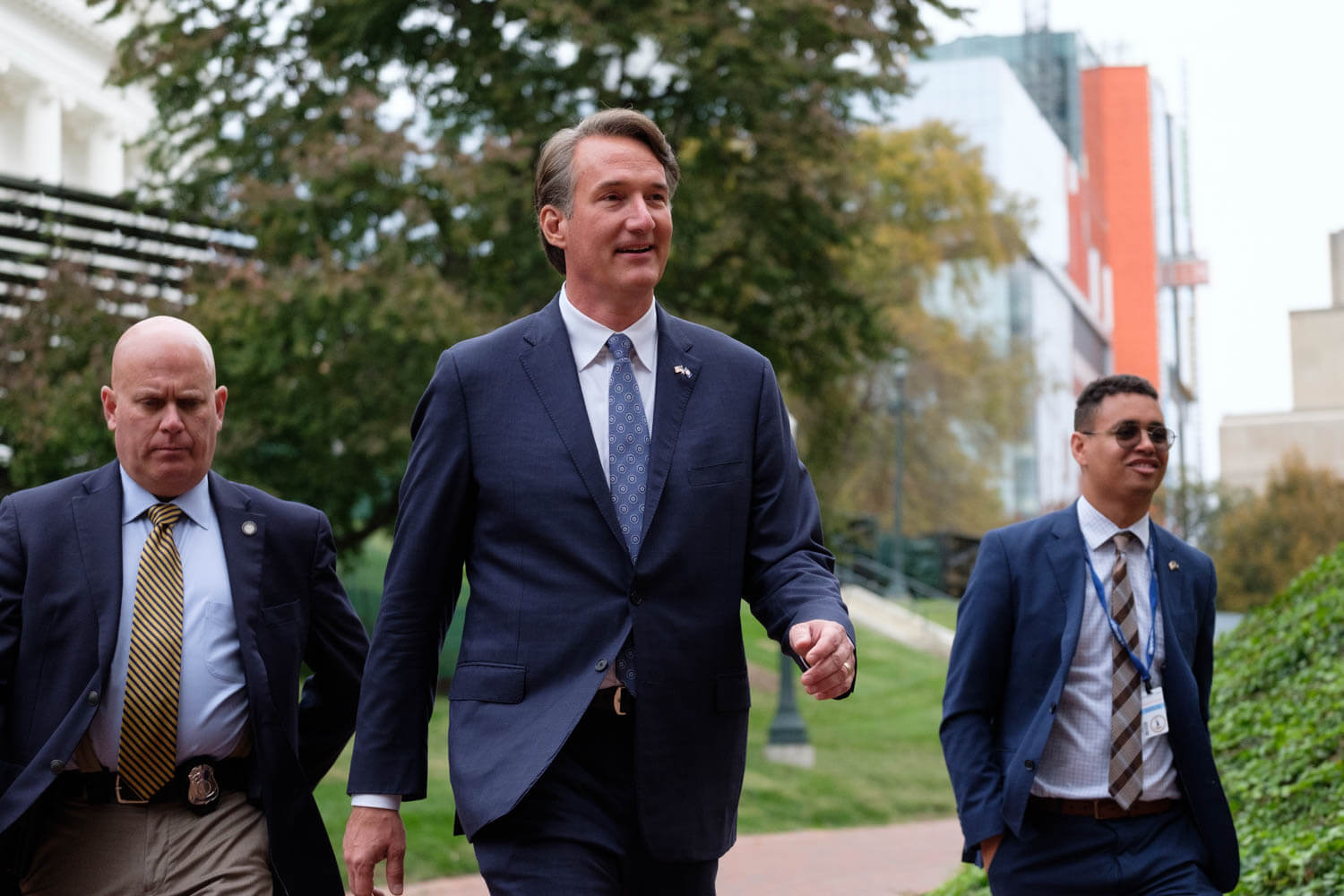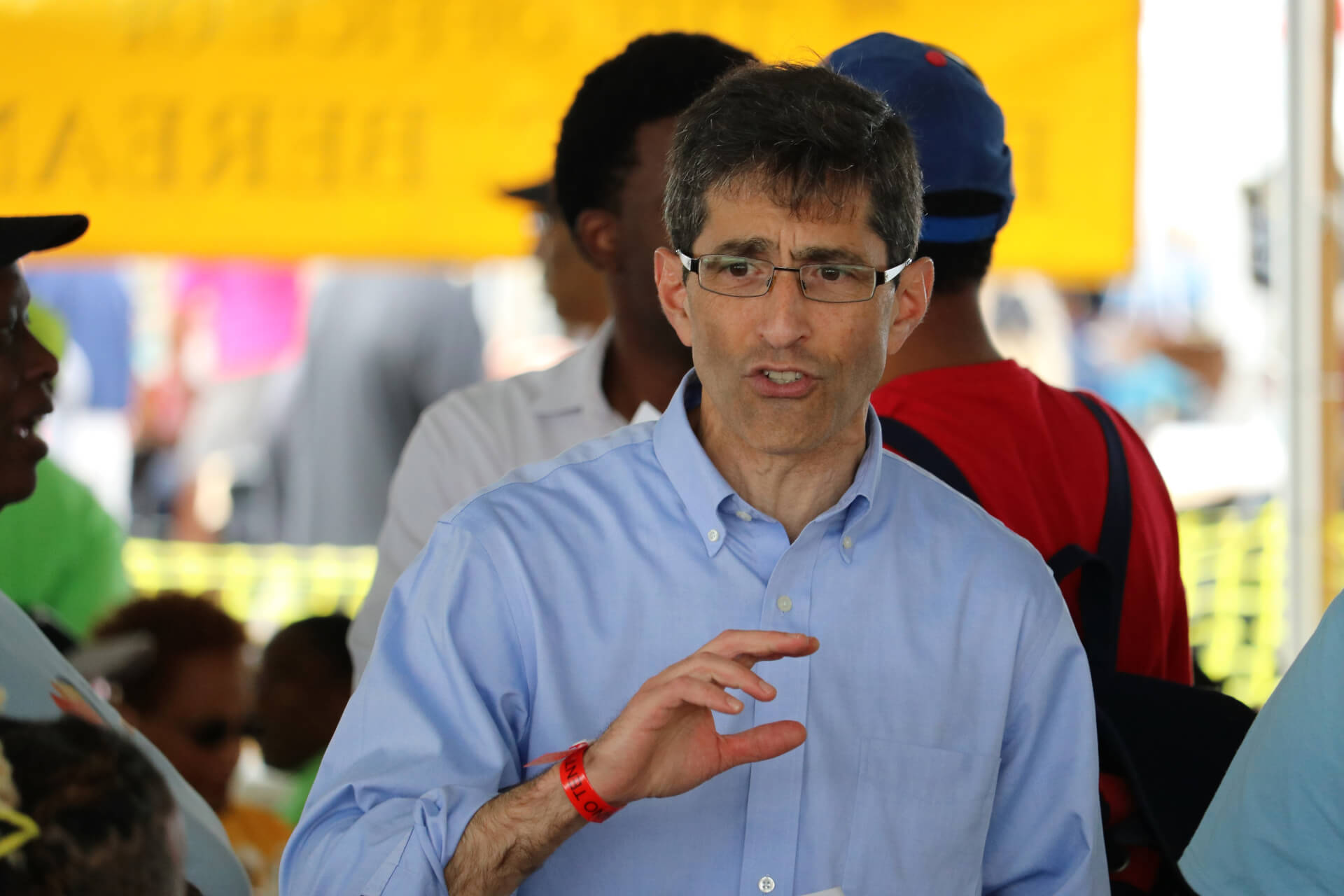Opinion: Hogan Must Demonstrate Climate Leadership With Transportation Agreement

Today, Gov. Larry Hogan has an opportunity to blaze a new trail for addressing climate change. By committing to the Transportation Climate Initiative, Governor Hogan would add Maryland to a group of Northeast and Mid-Atlantic states and the District of Columbia working together to reduce emissions from the transportation sector.
The initiative’s goal is to aggressively reduce emissions from cars over the next decade. Polling out this week shows that 75% of Maryland voters would support joining the initiative.
While the idea is popular, the task is difficult, and our governor’s leadership is sorely needed. Nationally, the transportation sector is the largest source of greenhouse gas emissions since overtaking the electric power sector in 2016. In Maryland, 52% of carbon dioxide emissions from fossil fuels come from the transportation sector. But Maryland has zero petroleum refineries, so when it comes to protecting and creating jobs, shifting away from gasoline and diesel and toward low- and zero-emissions transportation is commonsense.
The Transportation Climate Initiative builds on lessons learned from a similar approach in the power sector. Twelve years ago, Maryland similarly joined with regional partners to tackle power plant emissions through the Regional Greenhouse Gas Initiative. It worked. Since 2008, carbon emissions from power plants have fallen by 47%, outpacing the rest of the country by 90%. And electricity prices have fallen by over 5%, leaving households and businesses with more cash in-hand, too.
Now attention must turn to transportation, where emissions have been increasing steadily.
The regional agreement — which takes the form of a Memorandum of Understanding — has come together through years of careful work by staff and cabinet members in a remarkably transparent process rooted in large public meetings until the pandemic took hold. Then meetings and progress updates were broadcast online.
Governor Hogan took a critical step in transportation when he joined a similar grouping of states pledging to address greenhouse gas pollution from medium- and heavy-duty vehicles. It is a laudable step, but not enough. The Transportation Climate Initiative covers the whole land-transport sector and can have a substantially larger impact.
The initiative would establish an upstream fee — paid for by gas and diesel wholesalers — to fund investments in cleaner transportation. Yes, some of this cost will be passed along to customers. Polling shows that only half of Marylanders are willing to pay a bit more at the pump. This is understandable. We are in tough and uncertain times. Therefore, the challenge is keeping costs as low as possible and still finance strategic clean transportation investments that make sense for Maryland so urban and rural Marylanders alike will benefit.
Electric vehicle infrastructure investments and household incentives make sense. So, too, will electrifying some state and local government vehicle fleets. But cost-effective gains also can come from converting more school buses to propane, a popular existing initiative where Maryland is leading.
Supporting clean energy solutions that help urban and rural communities hit hard by pollution and climate change will create new jobs in Maryland and keep our state at the forefront of America’s transition to a new, cleaner economy.
The state’s climate experts agree it is the right step. Just last month the Maryland Commission on Climate Change recommended the Transportation Climate Initiative as a key component of the state’s plan to reduce greenhouse gas emissions. Governor Hogan has supported offshore wind and proposed a plan to get to net zero emissions from the power sector by 2040, a plan that was among the most ambitious in the country. He has been a consistent force for cleaning up the Chesapeake Bay by pushing back on proposed federal budget cuts and directing legal action to protect our state’s waters.
Governor Hogan has already made recommendations to save the Chesapeake Bay to President-elect Biden. He should build on this record by joining other governors and business leaders in support of the Transportation and Climate Initiative. It will set Maryland firmly ahead in the race to energize our economy and respond to the challenge of climate change.
— CHARLES HERNICK
The writer is the vice president of Policy and Advocacy at Citizens for Responsible Energy Solutions (CRES) Forum, a nonpartisan, nonprofit 501c(3) organization committed to educating the public and influencing the national conversation about clean energy. He lives in Annapolis.




 Creative Commons Attribution
Creative Commons Attribution